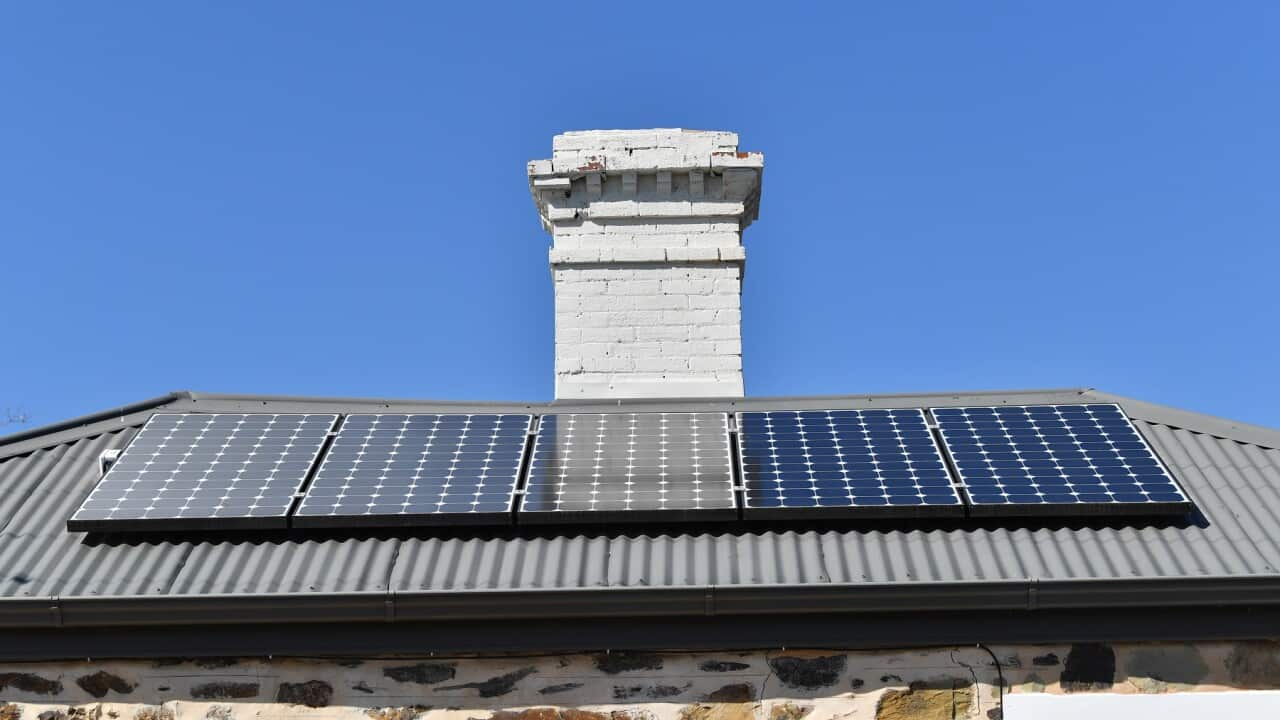TRANSCRIPT
When Mamoon Reza installed solar panels on his roof five years ago, his electricity bill dropped significantly.
"For us it was more about the not knowing – getting bill shocks. Sometimes it would be large, sometimes it wouldn't be as large. The peace of mind of not getting bill shocks anymore. Not getting a bill that you didn't expect to be so large."
Now, after adding solar batteries on top of that, he's not only saving money... he's earning it too.
"Once we put the batteries in, we actually haven't had any electricity bills this year at all. We've actually got a little bit of credit, we've got about 400 dollars in credits so far because we do sell some of the excess in the battery back into the grid."
The Climate Council says Australia's solar energy industry has grown significantly over the past decade, with more than 300 thousand systems installed every year.
It's saving the average household at least 1,500 dollars in power bills annually.
In Australia, rooftop solar adds up to 23 gigawatts of affordable renewable energy capacity – about a quarter of the national electricity capacity.
But the Climate Council found that the higher the household income in a postcode area, the less likely they are to install solar panels.
As a result, Climate Council Chief Executive Amanda McKenzie says there's untapped potential.
"We've found in our research that it's the outer suburbs that have really jumped on solar to reduce their household bills as well as reduce climate pollution. There is a lot of opportunity still in wealthy suburbs, as well as others like apartment dwellers, who may want to put solar but may have not had the opportunity yet. There is ongoing opportunity for solar in Australia, we are really just at the start."
But there's now a push for households to go one step further and invest in batteries that will store excess energy.
The Chief Executive of the Energy Institute at the University of New South Wales, Dani Alexander, explains.
"The benefit of a battery is not to generate new power but it's to store power that is generated from other sources and use it at different times of the day. In the context of renewable energy, it's variable. We often hear this story of 'the wind is not blowing' or 'the sun is not shining'. Any type of energy storage and battery included is able to store that at times when there's surplus and so we can use it when there's a deficit."
While said to help save money in the long run, Ms Alexander says the payback period for batteries could deter those struggling to make the investment.
"The upfront cost of a battery is really expensive so I think if we were to see the widespread rollout of battery storage at the household level, there would need to be some kind of government support for that. We did see that in the solar generation side, where at the early stages of solar PV development, there were government incentives that supported their roll-out."
With Australia being one of the sunniest countries in the world, the Council says it would be a waste not to use that to its full potential.













